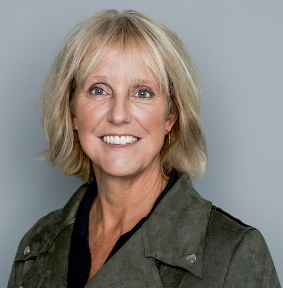27 October 2021 - From changes in business practices due to the global pandemic to supply chain issues and increasing costs, the past few years have presented the feed sector with unprecedented challenges.
In this special Industry Perspectives roundtable, which is inspired by a panel discussion at the Feedinfo Summit in Geneva on dealing with future supply chain disruptions, we reached out to Saskia Korink, Chief Executive at Trouw Nutrition and Chief Operating Officer at Nutreco, Emmanouil Geneiatakis, the Secretary General at FAMI-QS, and François Gautier, the Managing Director at ID4FEED, to see how their organisations have been adapting to this new business environment and how they are innovating to ensure they can maintain safety and quality standards whilst supporting clients around the world.
[Feedinfo] During these times of supply chain issues and higher costs, is product safety at risk of being neglected? And what impact are you seeing on product research and innovation?
|
|
[Emmanouil Geneiatakis, FAMI-QS] Resilience is the word dominating the industry during this pandemic. Feed businesses always operate in a complex environment, and the pandemic just added to this complexity. To be resilient, at least some parameters must remain stable, and this includes product safety and quality. Despite the enormous impact of the pandemic, feed businesses that had already implemented feed safety management systems had the quality infrastructure needed to properly manage the operational challenges the pandemic created. Based on the data we have available at FAMI-QS, none of the currently certified companies decided to abandon their certification for cost-cutting reasons. |
Research and innovation are other important pillars of resilience. Feed supply chains are very lengthy and complex, and the “re” era — redesigning, revamping, reimagining, and rethinking how to minimise the impact of the disruption caused by the pandemic — accelerated the implementation of ideas on improving production processes, sources and methods. However, limitations resulting from the current regulatory landscape is affecting the full deployment of those innovations.
[Saskia Korink, Nutreco] At Nutreco, and our animal nutrition division Trouw Nutrition, everything we do is underpinned by a strong focus on feed safety and quality, which we believe is a prerequisite for safe, sustainable food production. Despite the price volatility or supply chain challenges, we never compromise on feed safety. Not only is it fundamental to the health of animals and ultimately, humans, but it has also earned us the trust of our customers and kept us in business for 90 years.
During the pandemic, all our teams remained mobilised: from our operations and quality teams, that worked relentlessly to ensure our safety standards were being rigorously applied across the globe, to our procurement team, which reached out to suppliers to ensure continuous supply of quality ingredients. And we will continue to do so beyond the pandemic. We are continuing to invest in research and innovation, and we are going further by collaborating with stakeholders across the food and feed industries to drive innovative solutions for our customers.
[François Gautier, ID4FEED] There’s definitely a risk of negating product safety when the industry is focused on supply to maintain the same pace of labour, especially when the raw materials come from countries that were severely affected by the global situation with lack of workers. Similarly, product research and innovation have sometimes not been considered as the main focus during this time of securing existing systems.
[Feedinfo] How are you ensuring proper quality assurance during these challenging times?
[Saskia Korink, Nutreco] Over the course of nearly a century, we have developed deep expertise in what milk, egg and meat farmers need globally, as well as long-lasting relationships with our customers, who place their trust in our high-performing quality system, Nutrace®.
Nutrace covers the entire supply chain through collaboration with internal and external partners. It starts with suppliers, where we use rigorous selection criteria and execute audits to help ensure our raw materials meet optimal safety and quality standards. It continues with building food safety and sustainability management systems that contribute to the production of safer, healthier and more sustainable land animal proteins for the world’s growing population. The programme has five pillars that represent the foundation upon which we safeguard the manufacture of high-quality feeds from high quality raw materials.
Having operations in all stages of the value chain – including animal nutrition, sustainable animal production, processing and distribution – enables us to bring unique insights and reliable experience to our customers. We are one of the few players in the feed-to-food chain that contribute to qualitative and traceable pig and chicken meat production at so many different levels of the chain, thanks to our integrators based in Iberia. This not only gives us a better understanding of our customers’ challenges, but shows we practice what we preach.
|
[François Gautier, ID4FEED] Our work for the past few years has been on the integration of the supply-chain from the plant agronomics to the formulation and marketing of our products. Controlling the value-chain with strategic partners which work in full transparency is essential, particularly at the moment. A few months ago, the detection of ethylene oxide — an unauthorised substance — in feedstuffs such as sesame, herbs and spices made headlines. You might think that our flagship product, ID PHYT CAPCIN, which is based on chilli pepper with a high capsaicinoid content in, would have been affected. However, we analysed some batches as a precautionary measure, and, because our product sourcing is fully secured and products don’t come from at-risk countries, we had no problems. I think this makes customers very confident that their phytogenic supplier is controlling their business upstream. |
|
[Emmanouil Geneiatakis, FAMI-QS] Ensuring the safe and hygienic production of feed ingredients is critical, so the objective of implementing feed safety management systems or quality compliance has never changed.
With technologies like digital testing, virtual measuring tools and artificial intelligence, we are on the brink of a technological revolution that offers new ways for organisations to monitor production process and organise their daily operations. As workforces are often not in one location, communication and exchanging information is key to the success of these new ways of working and demonstrating compliance.
[Feedinfo] In which areas of the supply chain are you seeing the biggest challenges, and what interventions have been put in place to help?
[François Gautier, IDF4FEED] Port congestion and higher transport costs are definitely the biggest challenges worldwide. A lot more anticipation is needed to maintain the rhythm of the business. Additionally, we have tried to change the supply of some elements, such as the packaging of some products which is now coming from national suppliers.
|
Saskia Korink |
[Saskia Korink, Nutreco] To mitigate supply-chain disturbances, such as the shortage of sea freight containers and severe weather events, we are working on an integrated, end-to-end supply chain supported by digital tooling, with scenario planning on sourcing, production and delivery. This allows us to be more agile and adapt to unforeseen disruptions. We also have multiple sourcing strategies, long-term relationships with freight companies and business continuity plans that leverage our scale and network on a regional and global basis. |
We are investing and innovating to create better tracking, tracing, and monitoring systems in addition to faster analysis and on-site analysis that prevents nutritional losses (or spoilage) in raw materials. For example, climate change effects the quality of raw materials and, as a result, we expect the occurrence of mycotoxins to increase. That is why we developed the Mycomaster, a fast and simple in-house analysis tool that measures mycotoxins in raw materials. It is linked to our global mycotoxin database, which allows us to monitor and mitigate the risk as well as to support our and our customers’ raw material procurement decisions.
[Feedinfo] Do you think these challenges are the ‘new normal’, and how will businesses across the feed industry need to adapt and work together to ensure long-term product safety?
[Saskia Korink, Nutreco] In short, yes. Change is the only constant and climate change is one of the biggest challenges that we, as industry leaders, must solve together. Individually, feed companies can continue to find solutions through investing and innovating; but we can also make a contribution by sharing the load across the whole supply chain.
From our side, we are investing in research to develop the nutritional value of new and existing raw materials such as our kinetics programme and our new rapid raw material quality analysis. We are also developing an agile and resilient supply chain to ensure a security of supply.
In addition, we are establishing collaborative projects between the food and feed industries, with the emphasis on working on the preservation of the nutritive value of alternative raw materials, and how to incorporate these into feed rations. The use of food by-products as valuable feed ingredients helps reduce traditional human food-grade nutritional ingredients from going into animal feed as part of a circular economy, in alignment with Nutreco’s purpose of feeding the future.
[François Gautier, IDF4FEED] Some of them will last for a long time. There is a need to adapt some part of the supply chain to ensure long-term product safety and consistency.
[Emmanouil Geneiatakis, FAMI-QS] It is very difficult to say that these challenges are the new normal given that there are so many emerging risks. Factors such as emerging animal diseases, climate change, biodiversity loss, growing sustainability goals and the emergence of circular economies mean our circumstances are constantly evolving and there may never be a ‘normal’ again. Complex problems require collective experience, knowledge, and expertise to overcome. In turbulent times, maintaining the trust in the feed value chain is the success factor to ensure long-term product safety.
Published in association with Nutreco, FAMI-QS and ID4FEED

 Emmanouil Geneiatakis
Emmanouil Geneiatakis François Gautier
François Gautier


